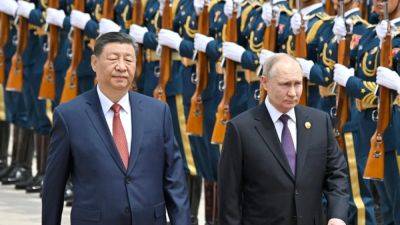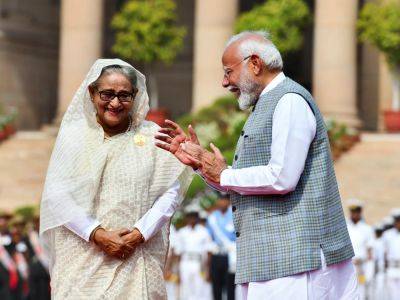Hasina’s last stand leans on India and pro-Hindu misinformation
Bangladesh’s recently ousted leader, Sheikh Hasina, has sought refuge in India, her closest foreign ally. Reports indicate that her efforts to win asylum in the UK, Canada, and the US failed, meaning she will likely stay in India for the foreseeable future.
Her son, Sajeeb Wazed Joy, has stated that the fallen leader has no intention of leaving India, and it appears that she is now strategizing a counter-offensive in response to the uprising that toppled her long rule.
So far, Hasina’s approach seems to involve aligning with India’s ruling Bharatiya Janata Party (BJP) and its Hindutva supporters, potentially dangling greater political influence for India in Bangladesh should she reclaim power.
To understand what’s at stake, it’s essential to grasp the relationship dynamics at play. The Indian government has consistently acted as a protector of Hasina and her Awami League, transforming India and Bangladesh diplomacy into a patron-client relationship reminiscent of Russia and Belarus.
In 2014, Hasina effectively secured an election victory even before the vote took place, with the main opposition BNP boycotting the polls.
In the lead-up to that controversial election, then-BJP external affairs minister Sushma Swaraj met with Bangladesh Jatiya Party leaders to encourage their participation, helping to provide a veneer of legitimacy to what was broadly perceived as a fraudulent poll.
In 2018, Hasina’s Awami League secured another highly disputed election victory with an astonishingly high margin of nearly 95%, reminiscent of North Korea. This win was tainted by unprecedented electoral fraud, orchestrated by government officials and law enforcement to favor the ruling party.
Despite widespread international condemnation of







